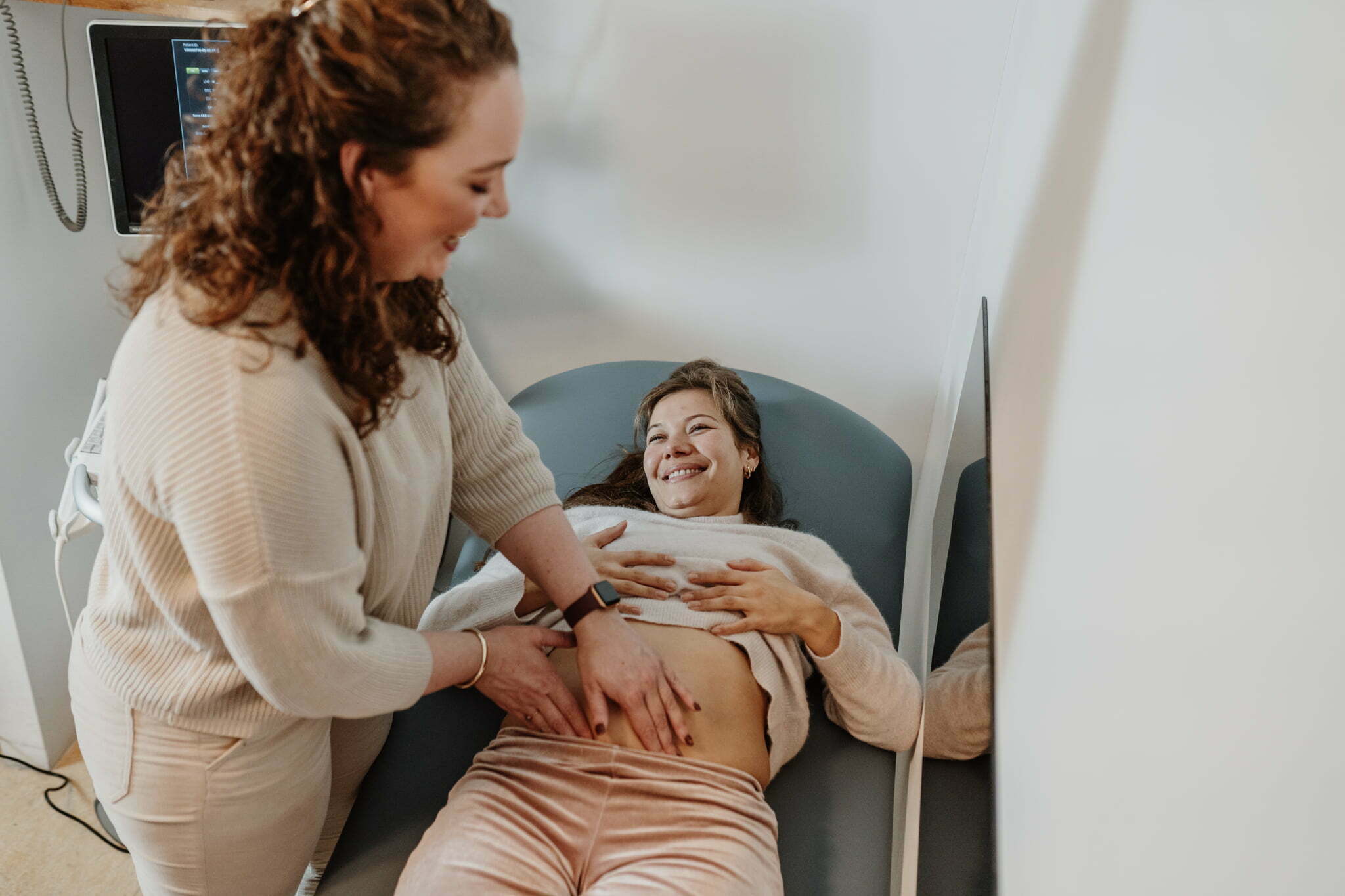Intake with your midwife
During the intake, the midwife takes 45-60 minutes to ensure you have a good start to your pregnancy. The intake consists of several parts:
Anamnesis
The midwife asks you and your partner many questions about your medical history. This includes your general health, whether you have been pregnant before, and whether there are any congenital abnormalities or diseases in the family that could affect your pregnancy. For an overview of the questions asked, please refer to the questionnaire sent to you after registration.
Care plan
Naar aanleiding van de anamnese stelt je verloskundige samen met jou een zorgplan op. Welke onderzoeken raden we je aan om te doen de komende maanden? Maar ook: wat zijn redenen om contact op te nemen met je verloskundige?
Counseling
Als je prenatale testen wenst (Nipt, 13-weken echo en 20-weken echo) lichten we je hierover voor tijdens een persoonlijk gesprek en ondersteunen je met het maken van een keuze hierin. Het gesprek gaat over jouw/jullie keuze. We bespreken welke gevolgen een bepaalde uitslag zou kunnen hebben, zou je bijvoorbeeld overwegen de zwangerschap af te breken als jullie kindje niet gezond blijkt? Wil je alles wat je kunt weten wel weten? Het antwoord vinden op deze vragen helpt jullie hopelijk naar een goede keuze. Lees meer over prenatale testen op www.pns.nl.
Tests
The midwife measures your blood pressure, calculates your BMI, and examines your abdomen. If you are less than 12 weeks pregnant, the heartbeat will not be listened to for medical reasons.
Logistics
The midwife provides you with information and referrals for blood tests, arranging maternity care, and any prenatal tests that may be necessary.
Ultrasounds
Indien de verloskundige die de intake doet een echo bevoegdheid heeft, dan zal zij een vroege echo of termijnecho maken.
Blood test
During or after the intake, blood is drawn. In the Netherlands, it is standard practice to test all pregnant women for their blood type, Rhesus D factor, Rhesus C factor, syphilis (lues), HIV, and Hepatitis B. Additionally, we assess your iron levels. Depending on your work conditions, dietary habits, or medical history, further tests may be recommended.














